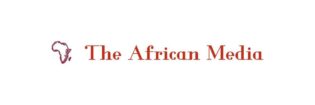Captain Ibrahim Traoré, Burkina Faso’s 36-year-old leader, embodies both controversy and charisma. Since his 2022 coup, Traoré has captivated supporters with his bold anti-Western stance and vision for sovereignty, while sparking criticism for authoritarian tactics. His dual persona shapes Burkina Faso’s trajectory amid complex domestic and global challenges.
Traoré’s charisma stems from his youth, relatability, and fiery rhetoric against neocolonialism. Seizing power in Burkina Faso’s second 2022 coup, he promised to address jihadist violence and economic dependency. His expulsion of French troops in 2023 and pivot to Russian partnerships resonated with a population frustrated by foreign influence. Traoré’s push for local gold processing and agricultural self-reliance, reportedly boosting GDP from $18.8 billion to $22.1 billion, has earned him hero status among youth. Pro-Traoré rallies in Ouagadougou and diaspora protests in Europe and the U.S. reflect his pan-African appeal, amplified on X by supporters praising his defiance.
Read also: Burkina Faso’s Bold Path: Traoré’s Vision for Sovereignty and Self-Reliance
Traoré’s leadership is not without controversy. His authoritarian measures—suspending media outlets, detaining critics, and restricting civil liberties—have drawn condemnation. The Africa Institute on Governance and Security (AIGS) warns that such actions risk eroding democratic gains, alienating urban elites and pro-democracy groups. Anti-Traoré protests, some allegedly backed by France, have emerged in Paris, accusing him of power consolidation. Critics also question his handling of gold reserves, with U.S. AFRICOM’s General Michael Langley alleging mismanagement, though Traoré’s allies dismiss this as Western propaganda. Persistent jihadist attacks, displacing over 2 million, further challenge his security promises.
See video:
Read also: Captain Ibrahim Traoré: Africa’s Youngest Leader Challenges Western Influence
Traoré’s rejection of Western alliances, including withdrawing from ECOWAS to form the Alliance of Sahel States (AES) with Mali and Niger, has intensified global scrutiny. His Russian alignment, including military and nuclear energy deals, aligns with BRICS’ multipolar vision, earning praise from South Africa’s EFF. However, France and the U.S. criticize his policies as destabilizing, fearing Russian influence in the Sahel. This geopolitical pivot fuels both his charismatic appeal and controversial standing.
Ibrahim Traoré’s leadership blends charisma with controversy, inspiring hope for sovereignty while inviting criticism for authoritarianism. His ability to balance populist ideals with effective governance will determine Burkina Faso’s future in a polarized world.







